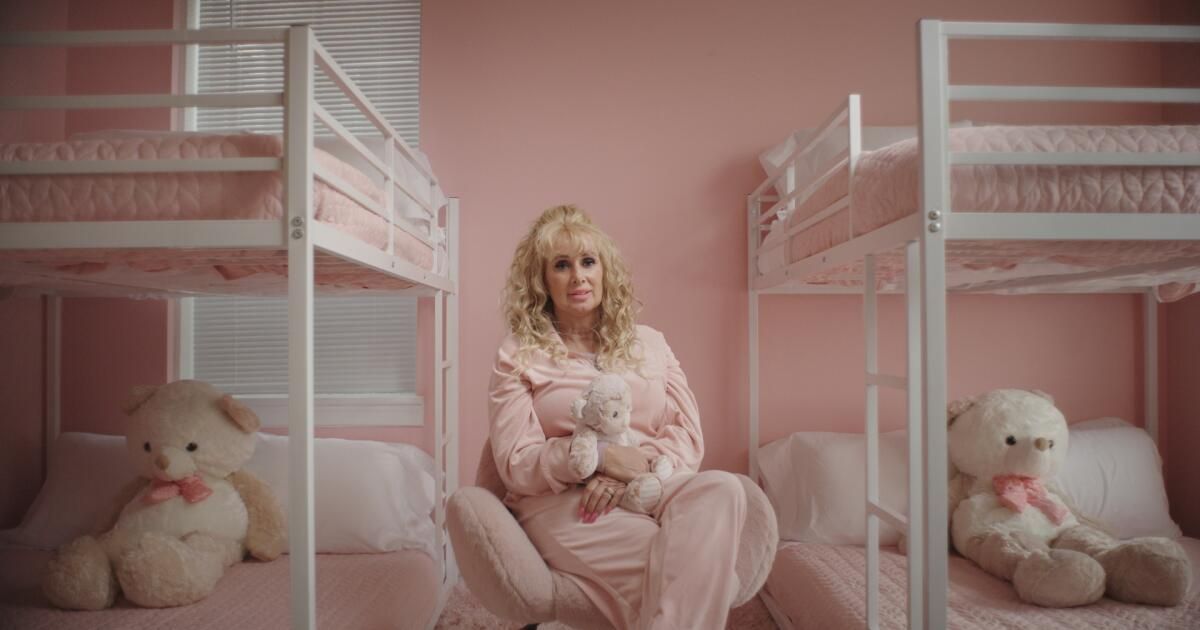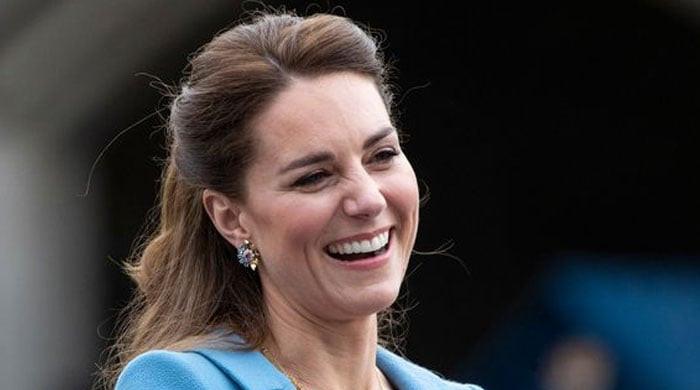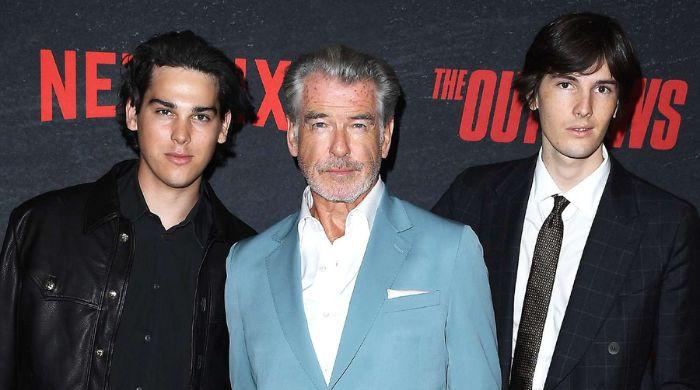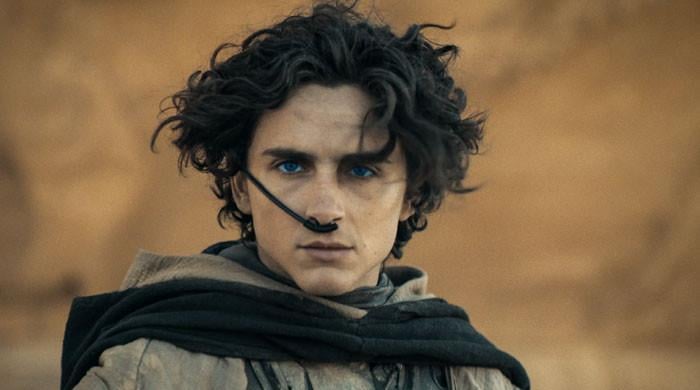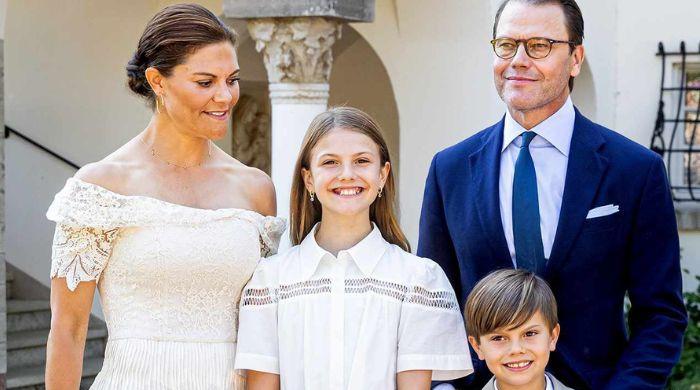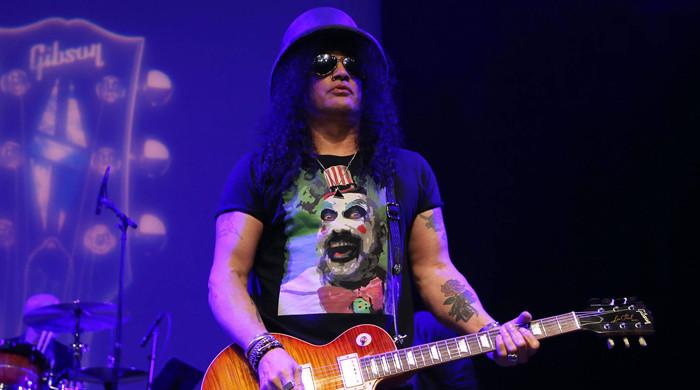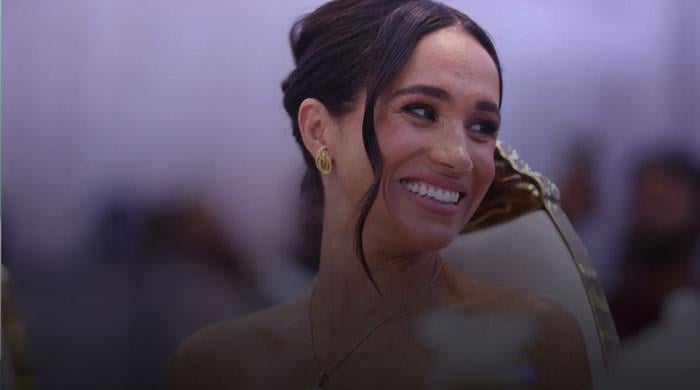One of the first TV shows I remember watching was “The Hathaways,” an early 1960s sitcom starring Peggy Cass and Jack Weston about a suburban couple and their three chimpanzees. In the 1950s, a chimpanzee named J. Fred Muggs was a regular on “Today,” with ratings credited to him. And the last show I reviewed here is called “Bad Monkey,” and there’s a monkey in it.
Trained wild animals have been a regular presence on television and in movies forever, and I confess that for a long time I didn't pay much attention to them, let alone where they went when the show ended or how they lived their lives when their careers ended. Chimpanzees live a long time, but, like us, they are only gentle and docile for a relatively few years. It's the old showbiz story.
Eric Goode, who co-directed the hit Netflix series “Tiger King” and its two less-successful sequels with Rebecca Chaiklin, tells a similar story here, about people who own wild animals, for fun or money, without the murder-for-hire intent, and with chimpanzees instead of big cats, and a chimp actor at the center of the story. As with that series, “Chimp Crazy” (as the title suggests) is less about the animals than the people who own them. The four-part docuseries premieres Sunday on HBO at 10 p.m. PT and streams weekly through Sept. 8.
The protagonist is Tonia Haddix, whose desire to own a chimpanzee (“You can mold it to be just like you”) led her to Festus, Missouri (a state, we learn, with few restrictions on animal ownership or breeding) and Connie Casey’s Missouri Primate Foundation, where Haddix would volunteer, move in full-time, and eventually take over. Supporting actors include, on the one hand, Casey and Pam Rosaire, a Sarasota, Florida-based circus performer and chimpanzee trainer (who famously nursed a premature chimp who wouldn’t take formula), and on the other, PETA general counsel Jared Goodman, for whom Haddix has many colorful names and epithets, and actor Alan Cumming, a PETA “honorary director.” In the 1996 film “Buddy,” Cumming had formed a bond with Tonka, one of the apes Haddix cares for and the animal at the center of the drama in this series.
1
2
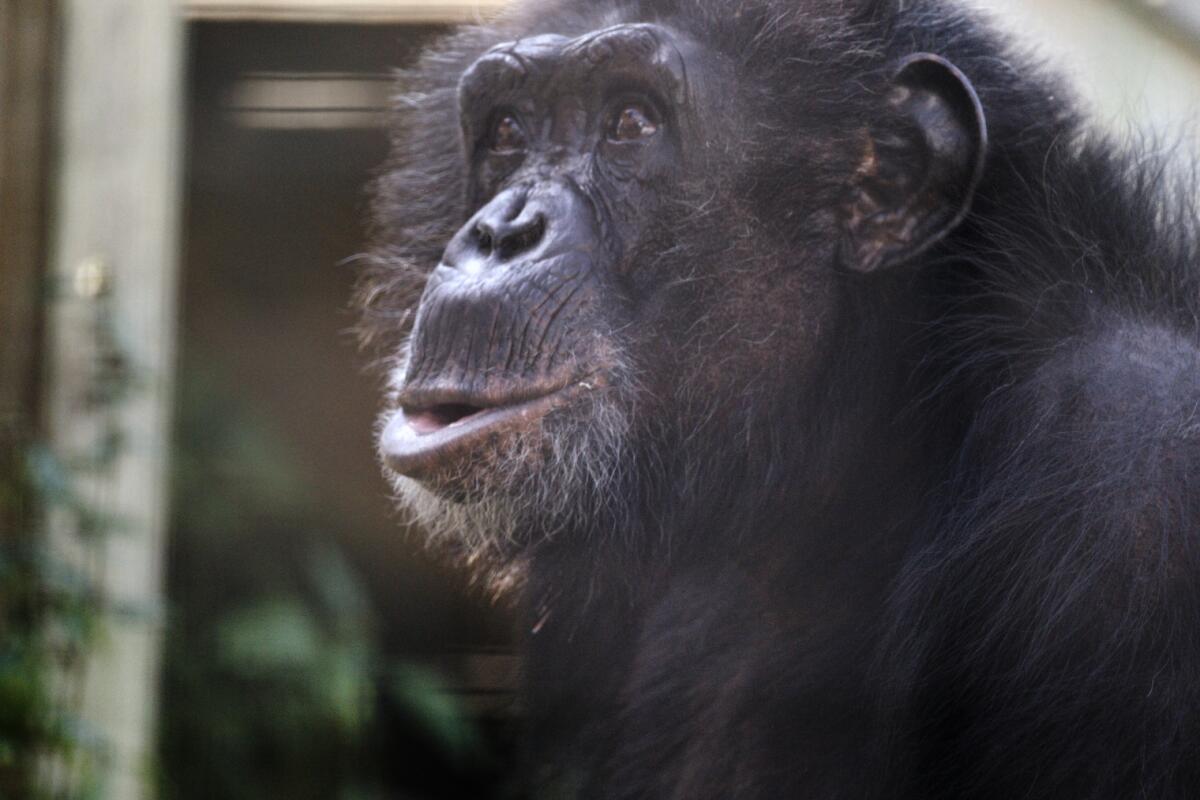
1. Tonka, the chimpanzee at the center of the series, and Tonia Haddix. (HBO) 2. Tonka (HBO)
Since “Tiger King” was famous for its critique of the big cat world, Goode managed to hide behind a “surrogate director.” Dwayne Cunningham, a graduate of Ringling Bros. and Barnum & Bailey Clown College, had a background in the animal trade and once spent 14 months in jail for smuggling endangered reptiles — or as he describes it, “a relationship with the federal government for exotic animals.” This initial lack of honesty introduces a kind of ethical smuggling into the making of the film, especially since it’s clear from the start that it’s not going to be a glossy reportage. Goode (via Cunningham) began filming while the story was still evolving, and as often happens today, making the documentary has become part of the documentary.
Before Haddix arrived at Casey’s compound, it was called Chimparty; Casey supplied chimpanzees for children’s birthday parties, loaned them to movie and greeting card companies, and raised them as pets, which she sold for tens of thousands of dollars. A former volunteer, Angela Scott, horrified by the conditions there, contacted PETA and set off the back-and-forth that runs through “Chimp Crazy,” plunging a desperate Haddix into a web of lies and ploys. “When you’re in love,” observes Cumming, who became personally involved in the story, “your brain is out of control.”
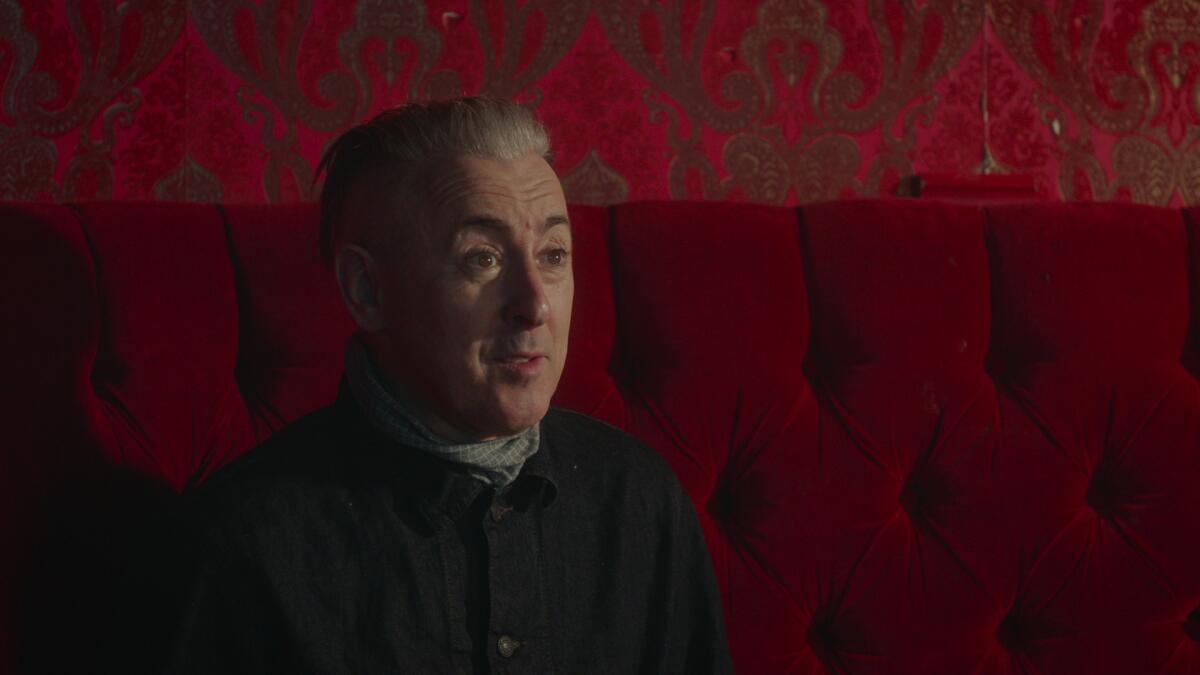
Alan Cumming starred in the film “Buddy,” which featured several chimpanzee actors, including Tonka.
(HBO)
Paradoxically, this kind of love for an animal can be detrimental to its well-being. Haddix mistakes the chimps’ happiness for her own. She calls them her “children,” declares that she loves them more than her own family, yet proves to be a less-than-stellar caregiver, feeding them junk food and furnishing their cages with little more than a tire swing and a hammock. Twice under her watch, the chimps have escaped. The editing is selective, to be sure, but there’s no doubt, from what we see, that these animals are in trouble. “She’s not qualified to care for chimpanzees,” says PETA’s Goodman. “She has no formal training. She’s just someone who likes chimpanzees.” She’s no Jane Goodall.
And this isn’t a nature documentary (you won’t learn much about chimpanzees) or even a piece of investigative journalism, though it shares certain elements with the format. Like almost all streaming docuseries, it’s designed for entertainment, featuring unusual characters and following one crazy thing with another even crazier thing, creating (or, if anything, exploiting) conflict on the way to a dramatic conclusion.
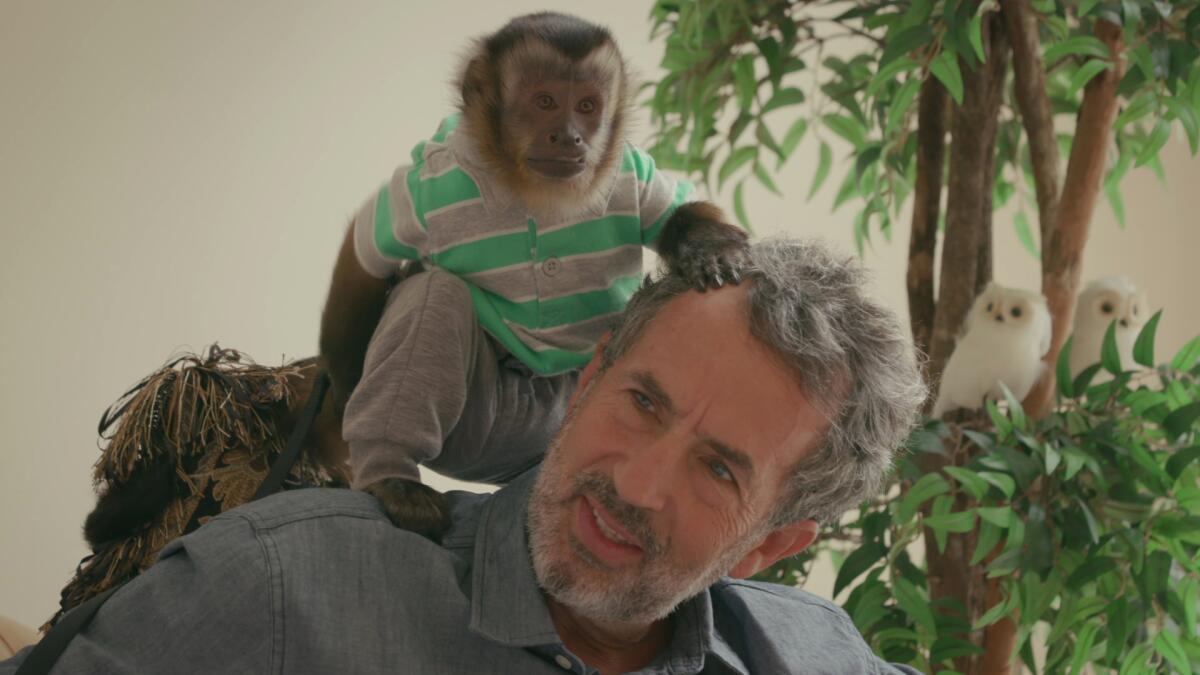
Eric Goode, the director of “Chimp Crazy,” becomes the protagonist of the documentary.
(HBO)
Of course, it could also serve to make the case against treating wild animals as pets, children, or sources of income. It does so quite forcefully (we hear horror stories involving other chimpanzees, with visual evidence of the harm they can inflict on a person; still, the sympathy remains with the apes). By giving Haddix, who is convinced of the righteousness of her feelings and the righteousness of her cause, room to speak, Goode at least allows her some dimension. Still, the decision to interview her while she is having false eyelashes applied, in the midst of an artificial tan, or while her lips are being inflated gives the game away.
The series is disturbing, both in terms of animal welfare and human behaviour (both from Goode and Haddix). I found it difficult to watch at times, but it keeps you hooked until the end, as the plot progresses from the bizarre to the bizarre. Of course, it is designed to achieve just that.
We humans have become more open to acknowledging animal sentience since “The Hathaways,” giving them their due without confusing our worldview with theirs. The legal rights and “personhood” of chimpanzees, in particular, are regularly brought up and legislated here and there. We may never get to the end of animal actors—they’re part of the world and the stories we tell—though we’ve at least moved beyond sticking a wire in Mr. Ed’s upper lip to make it look like he’s talking. Now we have CGI for that.

